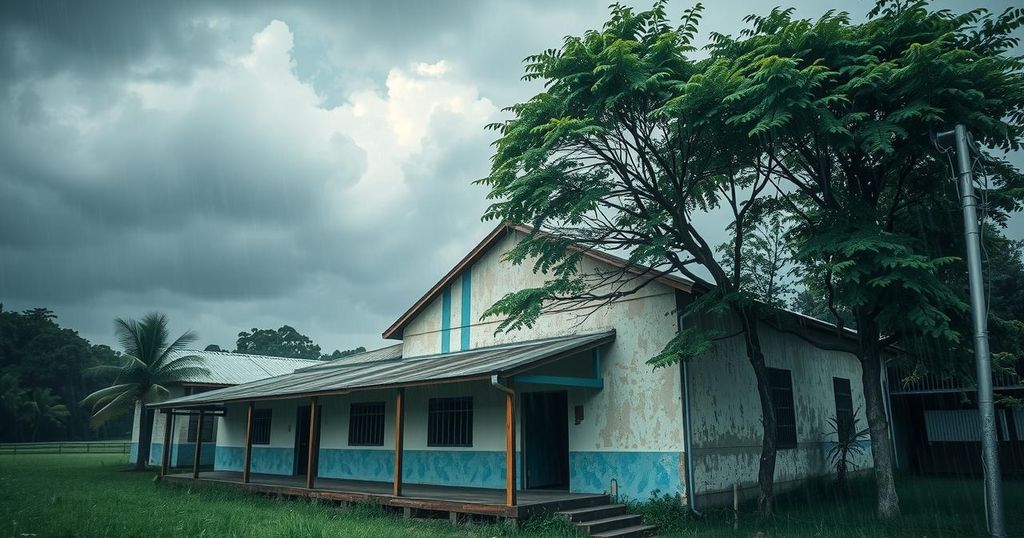UNICEF reports that 242 million children in 85 countries missed school due to extreme weather in 2024, with heatwaves being the leading cause. The most affected regions are low-income nations in Asia and sub-Saharan Africa, with flooding and destruction of schools exacerbating the crisis. Education systems are largely unprepared to handle these challenges, which threaten children’s learning and wellbeing.
According to UNICEF, extreme weather events disrupted the education of 242 million children across 85 nations last year. These interruptions, due to heatwaves, cyclones, and flooding, highlight the significant impact of climate change on global education. Approximately one in seven school-aged children experienced disruptions, particularly in low-income countries, such as those in Asia and sub-Saharan Africa, where the destruction of schools has been severe.
Southern Europe also faced adverse weather, with Italy and Spain reporting significant school interruptions due to flooding. The report emphasized that heatwaves were the primary climate-related cause of school closures, as 2024 recorded exceptionally high temperatures. In April, alone, over 118 million children experienced pauses in their education due to a widespread heatwave.
Catherine Russell, UNICEF’s executive director, stressed that children are particularly susceptible to climate-related crises. Their physiological vulnerabilities make them more affected by extreme weather events. Consequently, the combined effect of flooding and excessive heat severely disrupts their ability to attend school and learn.
The report indicated that around 74% of children affected by these crises were in middle- and low-income countries. Flooding had destructive consequences, obliterating schools in Pakistan and Afghanistan. Meanwhile, the El Niño phenomenon exacerbated long-standing drought conditions in southern Africa, threatening the futures of countless children in the region.
Cyclones and tropical storms also continued to impact educational access. The devastating effects of Cyclone Chido on the French territory of Mayotte and Mozambique further illustrate the ongoing crisis. Given this context, UNICEF warned that education systems worldwide are ill-prepared to address the escalating challenges posed by extreme weather events.
The growing frequency and intensity of climate change repercussions, including heatwaves, floods, and cyclones, have severely impacted educational systems globally. The United Nations Children’s Fund (UNICEF) highlights that millions of children are being deprived of their right to education due to these climate hazards. The situation is particularly dire in low-income countries, where resources are insufficient to manage the effects of extreme weather on schooling.
In summary, the UNICEF report reveals a stark reality where nearly 250 million children faced educational disruptions due to extreme weather in 2024. This crisis predominantly affects children in poorer nations, illustrating the urgent need for robust educational infrastructure capable of withstanding climate-related challenges. As climate change continues to threaten global education, immediate action is required to safeguard the futures of these vulnerable populations.
Original Source: www.pbs.org






